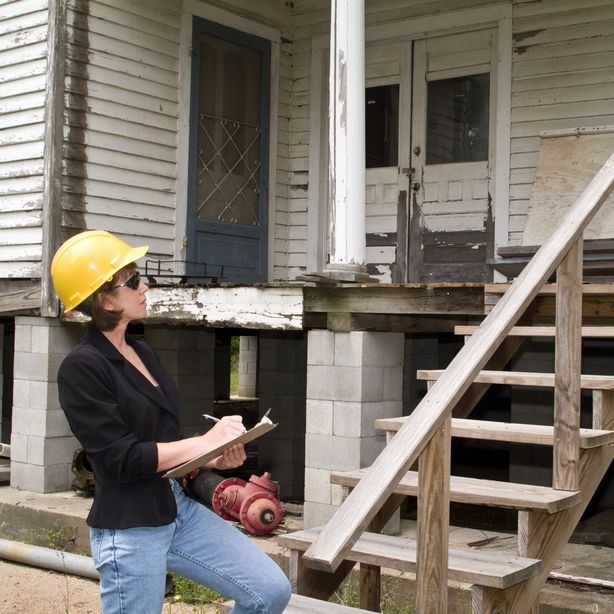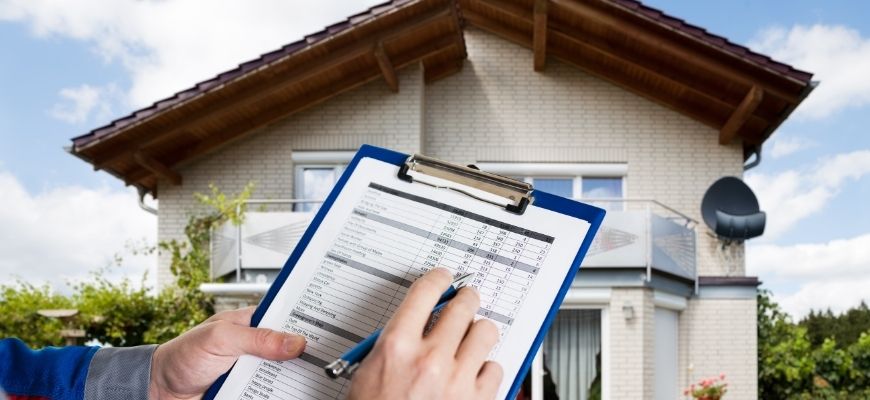What Is Included in a Detailed Property Evaluation Process?
A detailed residential or commercial property evaluation process is important for ensuring and guarding investments safety. It incorporates a precise examination of structural honesty, electrical systems, pipes, and A/c units, amongst various other critical elements. What, after that, are the most vital aspects that can make or break a residential or commercial property evaluation?
Overview of Residential Or Commercial Property Examination

The evaluation encompasses numerous crucial areas, consisting of the exterior and interior aspects, systems such as plumbing and electric, and any type of visible structural components (Commercial property inspections). During the process, the inspector records the condition of these components, trying to find indicators of wear, damage, or possible risks
A thorough building evaluation not just helps potential customers make informed decisions yet also helps existing owners in comprehending essential repair work or upkeep tasks. By offering a thorough report of searchings for, the inspection allows stakeholders to prioritize problems that might require instant focus or might impact future financial investment.
Additionally, a reliable examination process follows established market requirements and standards, ensuring a reputable and regular analysis. On the whole, the residential property examination procedure is an important device in real estate transactions, promoting openness and guarding both customer and vendor passions.
Architectural Examination

Throughout the evaluation, specialists evaluate numerous components, consisting of the structure, framework, wall surfaces, and roofing systems. They seek signs of settling or shifting, such as splits in wall surfaces or irregular floorings, which can indicate underlying issues. The evaluation also involves analyzing the high quality of building materials and techniques used, guaranteeing compliance with building codes and standards.
Additionally, inspectors might look for indicators of dampness invasion, which can cause wood rot and mold, additional jeopardizing structural integrity. They also evaluate load-bearing elements to ensure they can effectively sustain the weight of the building and its components.
Eventually, a complete structural evaluation gives very useful understandings for potential customers and home owners, enabling them to make enlightened decisions regarding residential or commercial property investments and essential upkeep. By determining structural issues early, owners can address concerns proactively, maintaining the lasting worth and safety of the building.
Electrical System Evaluation
A reliable electrical system evaluation is crucial in the residential property inspection process, as it reviews the safety, performance, and conformity of a structure's electrical look at these guys facilities - Phoenix home inspections. This evaluation normally encompasses a complete examination of the main electrical panel, breaker, and circuitry systems. Inspectors try to find indicators of wear, corrosion, or damages that might compromise safety
The examination consists of testing for sufficient grounding and bonding, ensuring that the electrical system is properly attached to protect against electric shock or informative post fire hazards. Inspectors likewise analyze the capacity of the electrical system to handle the current load, identifying any prospective overwhelming problems that might result in interruptions or failings.
On top of that, the analysis look for the visibility of GFCI (Ground Mistake Circuit Interrupter) and AFCI (Arc Mistake Circuit Interrupter) gadgets in proper locations, which are important for securing against electrical shocks and preventing fires. Conformity with neighborhood building codes and laws is likewise validated to ensure that any kind of installments or adjustments satisfy safety criteria.

Plumbing and Cooling And Heating Checks
Following the electrical system evaluation, the pipes and cooling and heating checks are integral components of the building inspection process. These assessments guarantee that the necessary systems of the building are operating properly and safely, thus securing the financial investment and health of the owners.
During plumbing examinations, specialists assess the problem of pipes, components, and water drainage systems. They check for leaks, deterioration, and any kind of indicators of water damages that might indicate larger issues. The performance of water heating systems is additionally reviewed to guarantee they satisfy current standards and provide adequate warm water supply.
Assessors will certainly assess the operational efficiency of these systems, ensuring that they maintain a comfortable indoor environment. Additionally, the assessor will look for any kind of indicators of wear or prospective safety hazards, such as carbon monoxide leaks in heating systems.
Exterior and Inside Assessments
Exterior and indoor evaluations are crucial facets of the building assessment process, offering a thorough overview of a residential or commercial property's problem. The outside assessment includes evaluating structural elements such as the roofing, exterior siding, foundation, and home windows. Assessors try to find signs of wear, damage, or possible risks, including water visit invasion, mold development, and pest invasions. They likewise evaluate the bordering landscape, ensuring proper drainage and determining any kind of trees or plant life that might intimidate the residential property.
The indoor assessment focuses on the problem of living areas, including wall surfaces, floor covering, and ceilings. Inspectors examine the capability of devices, home windows, and doors, while also looking for signs of dampness or structural issues. Electric systems, plumbing components, and heating and cooling units are looked at to guarantee they are in functioning order, certified with building regulations, and complimentary from safety threats.
Both assessments culminate in an in-depth record that highlights essential findings and referrals for repair work or more assessments. This twin method makes certain that potential purchasers or proprietors are completely educated about the building's strengths and weak points, allowing them to make well-informed choices.
Final Thought
Finally, an extensive property assessment procedure encompasses a substantial evaluation of structural stability, electrical systems, plumbing, and cooling and heating units, together with in-depth outside and interior evaluations - Best home inspections. By systematically assessing each crucial element, possible safety and security risks and compliance with industry requirements and neighborhood building ordinance can be identified. The resultant detailed report functions as an important resource, empowering buyers and property owners to make informed decisions regarding residential or commercial property investments and maintenance, ultimately enhancing safety and value
A detailed residential property assessment process is vital for ensuring and guarding investments security.During the examination, specialists examine various components, consisting of the foundation, framing, walls, and roof covering systems.An efficient electric system assessment is important in the residential property examination procedure, as it reviews the safety, performance, and conformity of a building's electrical framework.Exterior and indoor assessments are vital aspects of the property assessment process, giving an extensive overview of a residential or commercial property's problem.In conclusion, a thorough home inspection process incorporates a substantial evaluation of architectural honesty, electrical systems, pipes, and HVAC systems, along with comprehensive outside and indoor evaluations.